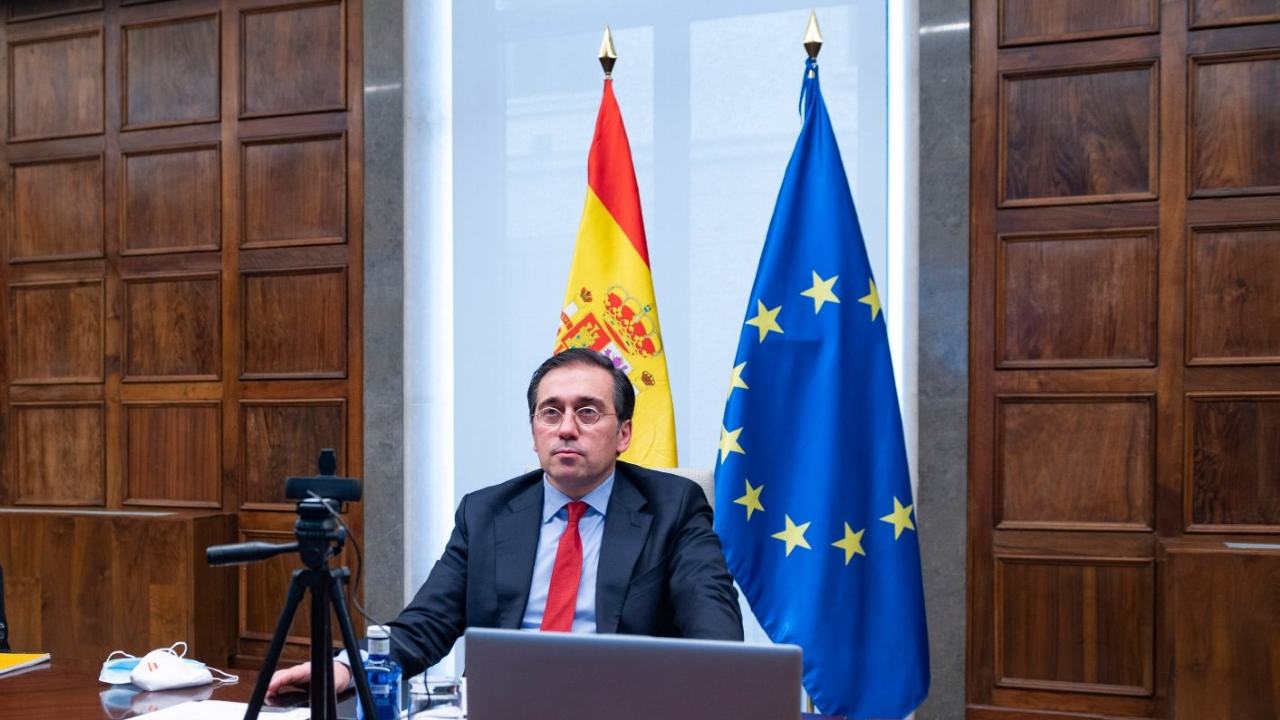Spain traditionally held an ambivalent position towards Russia. Under the previous conservative government of Prime Minister Mariano Rajoy, the country sent conflicting signals — supporting European Union (EU) sanctions and NATO military measures after the annexation of Crimea — while making overtures to the Kremlin. Russian Foreign Minister Sergei Lavrov has received the highest honors in March 2014, right in the middle of Russia’s military intervention.
Unlike Germany or Italy, no deep interests underpin Spanish-Russian relations. Spain does not depend on Russian gas and Spain’s trade balance with Poland is several times larger than with Russia. Until recently, quite a few within the establishment, including in the diplomatic corps, have held deeply rooted, often naïve views about Russia, ignoring the reality of Putin’s rule and displaying more or less open sympathy with its so-called legitimate interests.
Hostile Russian actions have gradually eroded the legitimacy of these positions, while its talk of “friendship” with Spain was undercut by the peddling of disinformation in the crisis over Catalonia. And in February last year, Russian Foreign Minister Sergey Lavrov humiliated the EU’s foreign policy chief, and former Spanish Foreign Minister, Josep Borrell.
Under Prime Minister Pedro Sánchez, Spain has moved beyond the comfort zone of classic Spanish foreign policy in Latin America, North Africa, and the EU. It has joined the Netherlands, Sweden, and Canada to send NATO troops to Latvia, beefing up Spain’s contributions to the Eastern flank. His government also upped Spain’s support for Ukraine and the Belarusian democratic opposition.
Foreign Minister José Manuel Albares has become a driving force in the present policy reset. Right before the Russian invasion, he visited Kyiv and has been steadfast in supporting the blizzard of EU sanctions following the February 24 invasion. Spain is sending lethal equipment to Ukraine, including rocket-propelled grenade launchers and ammunition, having previously only provided defensive military equipment. Albares states that the aim now is the economic collapse of Putin’s Russia, while supporting Ukraine’s resistance and sovereignty.
Spanish public opinion, generally mistrustful of Putin’s Russia and its authoritarianism, now sides overwhelmingly with Ukraine’s fight for freedom. In the Spanish mind, especially in the left, the invasion of Ukraine and Russian abuses bring back the nightmare of the West’s abandonment of the Spanish Republic during the Spanish Civil War. Such memories have galvanized many left-wing leaders, including Vice President Yolanda Díaz, a rising political figure and member of the small Communist party. Her party previously echoed the Kremlin’s anti-Ukrainian propaganda.
Yet not everyone aligns with the new hostility to Russia. Coalition partner Podemos, a left-wing populist party, still opposes the provision of military assistance, though it has stopped short of breaking ranks with Prime Minister Sánchez. The decision to supply arms to Ukrainian resistance strains the coalition government, while some establishment pundits remain more or less openly sympathetic with Russia, laying the blame on NATO.
The Spanish role in Ukraine will grow in the coming months. In June, Spain will host the NATO summit.
Yet there is much more for Spain to do. Military assistance must be sustained. Night vision equipment together with more anti-tank weaponry should be top of the list. Building on earlier efforts, Spanish law enforcement must crack down harder against Russian organized crime and oligarchs in the country.
Spain could also take a lead in pressing the case against Russian war crimes in Ukraine. The decision of the Prosecutor General to initiate an investigation on potential crimes resulting from Russia’s invasion is a nod in this direction.
Mainstream policy debates around major international crises often focus on great powers, overlooking the role of middle-power democracies. Yet much of the foreign policy business gets done because of their active engagement. Spain’s actions to confront Russia offer striking proof.
Borja Lasheras is a Non-Resident Senior Fellow with the Transatlantic Defense and Security program at the Center for European Policy Analysis (CEPA). He served at the Spanish Presidency of the Government between 2018 and late 2021, where he held the position of Senior Foreign Policy Advisor (2020-2021).




